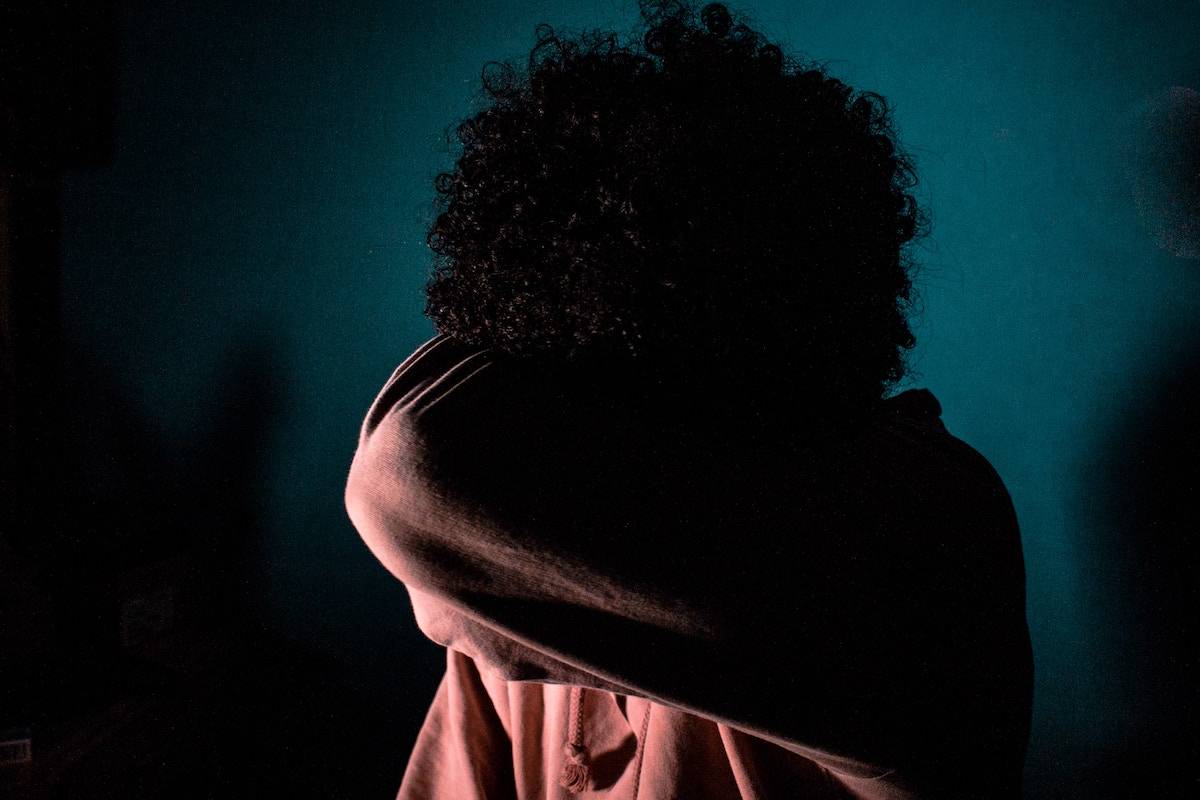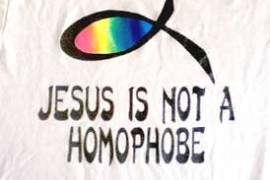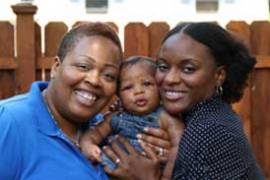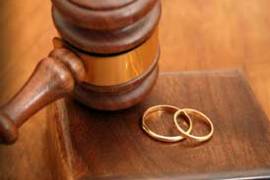Co-authored by Richard Saenz, Senior Attorney and Criminal Justice and Police Misconduct Strategist, and Ethan Rice, Fair Courts Project Attorney.
October is Domestic Violence Awareness Month, and during this month and throughout the year, Lambda Legal is committed to ensuring that LGBTQ survivors have access to courts that are fair and unbiased.
Studies show that LGBTQ people experience domestic violence at similar or higher rates than heterosexual and cisgender people. In recent surveys, 44% of lesbian women, 61% of bisexual women, 26% of gay men, 37% of bisexual men, and 54% of transgender and nonbinary people reported that they had experienced domestic violence. However, our legal system and the resources available for survivors of domestic violence are often ill equipped for – if not openly hostile – to our communities.
This summer, Lambda Legal, along with ACLU of Southern California, ACLU of Northern California, and the LGBTQ Center Long Beach, filed a friend-of-the-court brief in the case In Re the Marriage of Maria C and Luis C in the California Court of Appeals to bring attention to the experiences of LGBTQ survivors and the severe consequences for survivors of domestic violence when a restraining order is wrongly issued against them. In Maria C., the trial court issued restraining orders against both Maria and Luis despite significant evidence that Luis terrorized Maria with a pattern of abusive behaviors. The trial court used against Maria the fact that she had not disclosed the domestic violence in earlier family court proceedings in its determination of whether to issue mutual restraining orders.
Although Maria C. involved a different-sex couple, our brief in support of Maria discussed how LGBTQ survivors are harmed by misunderstandings of domestic violence in LGBTQ relationships, and the need for consistent and proper application of the law. These misunderstandings by police officers and courts may lead to misapplication of primary aggressor assessments. The appellate court agreed that the lower court had improperly applied the law, and reversed the restraining order against Maria.
Our brief also highlighted findings from Lambda Legal’s Protected & Served? national community survey, and other data which showed bias in the legal system and in policing against LGBTQ people. The survey found a pattern of inadequate responses from police officers when LGBTQ respondents reported they were victims of physical assault or domestic violence. In the 2015 US Transgender Survey, a majority (57%) of the over 27,000 respondents said that they would not be comfortable calling the police for help. Our survey found that 19% of respondents who had been involved in the court system over the previous five years had heard negative comments about sexual orientation, gender identity, or gender expression come from judges, attorneys, or court staff.
While LGBTQ people continue to be harmed by bias and discrimination when seeking assistance as survivors of domestic violence, the federal Violence Against Women Act (VAWA) explicitly prohibits discrimination based on sexual orientation and gender identity. All service providers that receive funding through VAWA – including shelters, crisis centers, and legal services organizations – must serve LGBTQ people. We will continue to fight for fair courts for all.
If you are an LGBTQ person or person living with HIV that is a survivor of violence and need support, we encourage you to contact the Anti-Violence Project.





